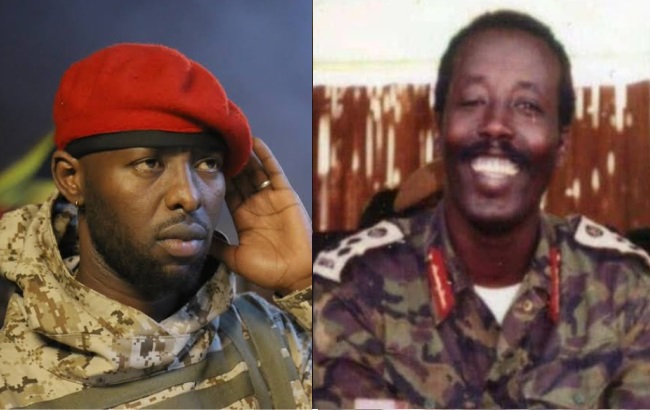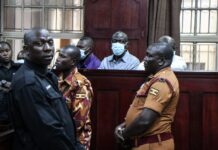The Ugandan music industry was thrown into shock on Saturday night when President Yoweri Kaguta Museveni publicly revealed that award-winning musician Eddy Kenzo is the biological son of the late National Resistance Army (NRA) commander Maj. Gen. Eriya Mwine, widely remembered by his nickname “Chefe Ali.”
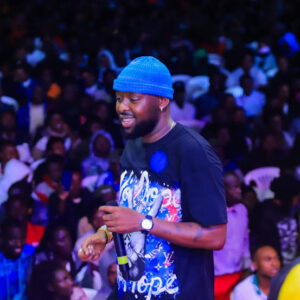
The revelation came during the launch of Museveni’s new Yoweri album at Speke Resort Munyonyo, an event organized in partnership with the Uganda National Musicians Federation (UNMF), led by Kenzo. The glamorous night drew politicians, military veterans, business leaders, and some of Uganda’s biggest music stars.
In his speech, Museveni praised Kenzo for what he called his “integrity and transparency” in handling government support given to UNMF. He then stunned the audience by turning to the singer and asking:
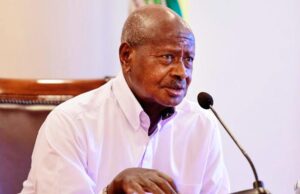
> “Kenzo is the son of a soldier. He’s the son of Chefe Ali. Did you tell them your father, or are you hiding it?”
The remark triggered audible gasps across the ballroom, as many in attendance were taken aback. Kenzo, who has for years narrated a painful childhood marked by hardship and the loss of his parents, has rarely spoken about his father.
Who Was Chefe Ali?
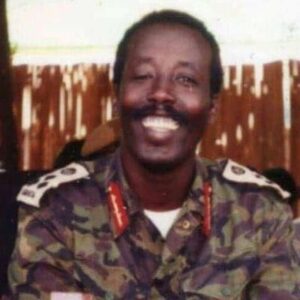
Maj. Gen. Eriya Mwine, also known as Chefe Ali, was a key NRA commander during the bush war that brought Museveni to power in 1986. Known for his bravery and loyalty, he played a pivotal role in several operations before his untimely death in the 1980s. His legacy remains honored in military circles, but his family has largely remained out of the limelight.

Museveni’s disclosure immediately set social media and news outlets ablaze. Many Ugandans expressed surprise, pointing out that Kenzo has always projected himself as a self-made artist who rose from poverty and uncertainty about his parentage.
Some commentators are now asking whether Kenzo knowingly withheld this part of his identity, or whether he himself only learned of it recently. Others question the timing and intent of Museveni’s revelation, especially given Kenzo’s rising profile not only as a musician but also as head of UNMF, a body that has received government backing.
As of Sunday afternoon, Kenzo and his management had not issued any official response to Museveni’s remarks. Calls and messages to his team went unanswered. Close associates, however, told local outlets that the singer appeared “shocked but composed” after the President’s speech.
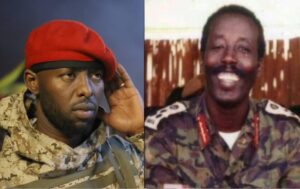
Kenzo, born Edrisah Musuuza, is celebrated internationally, with accolades such as the BET Award under his belt. His rags-to-riches story has inspired millions, especially his oft-repeated narrative of growing up “with no father and no mother.” Museveni’s disclosure, if accurate, complicates that narrative and could reshape public perception of his personal journey.
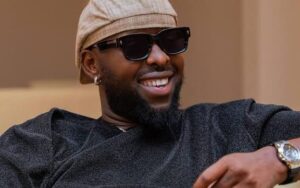
The incident highlights the increasingly complex intersection of politics and entertainment in Uganda. Kenzo has become an influential cultural figure, often courted by both government and opposition camps. His close association with Museveni, underscored by his leadership of UNMF, has already drawn mixed reactions from fans. This new revelation may deepen those debates.
For now, Ugandans await clarification from Kenzo himself—whether to confirm, deny, or explain the President’s claim. Until then, the country’s biggest music star remains at the center of a storm that blends family history, politics, and the future of Uganda’s creative industry.
